 Health
Health
Hospital aims to test all seniors for stroke risk
(CNS): In a major health research project doctors at the Shetty hospital in East end are aiming to test 3000 people over the age of 65 in Cayman to assess and help treat their risk of stroke as well as collect enough clinical data for a medical study on the subject of Atrial Fibrillation or arrhythmia. The project was formerly launched at Health City Cayman on Monday when around 30 over 65s were tested using high tech equipment following an explanation of the project by Dr Irka Ebanks, who will be leading the research study and screenings. The study, the Cayman Islands Atrial Fibrillation for Elderly (CAFE) is the first of its kind in the Caribbean and will deal with both risk and treatment.
Commonly known as Afib the condition is an irregular, erratic or fast paced heart beat which allows blood to accumulate in the lower chambers of the heart because. This can lead to clotting and the clots can enter the blood stream and reach the brain causing a stroke. Although medical experts do not know what causes the problem they know that certain circumstances can place people at high risk.
Those risk factors include; if a person is aged over 65, if they suffer from high blood pressure, if they have coronary artery disease, heart failure, valvular heart disease or congenital heart disease. Other risk factors include if a person suffers from sleep apnoea, hyperthyroidism (too much thyroid hormone), obesity or diabetes. In addition, if they suffer from lung disease, have a family history of Afib or have a history of smoking and alcohol abuse, then they are more likely to suffer from Afib.
Dr Ebanks said it was extremely important to screen people because in many people, AFib does not cause obvious warning signs.
“When symptoms do occur, they often include palpitations, chest pain/tightness, dizziness, breathlessness, fatigue or lack of energy,” she said. “These symptoms do not always immediately indicate Afib, so screening people means patients themselves may be better equipped to understand the warning signs and at the same time we will have the information we need to help diagnose the condition quickly. Speed is of the essence in such a case: the sooner a patient receives medical care following a stroke the better the prognosis.”
There are millions of people around the world with Afib, with 2010 estimated numbers globally running at 33.5 million for men and 12.6 million for women, so it is a huge problem world-wide.
Following the launch on Monday screenings will be held at the hospital over the next few weeks and doctors will also be going into the community to test as many of the 3000 people here aged 65 and over as possible, in order to get enough information to support any research conclusions.
The hospital is urging all seniors or anyone who may have other risk factors to join in the study. The non-invasive testing is being done using Ipad app technology as well as an EKG and simply reads pulse vibrations, and takes under10 minutes to complete.
For more information call 1 (345) 945-4040 or visit healthcity.ky
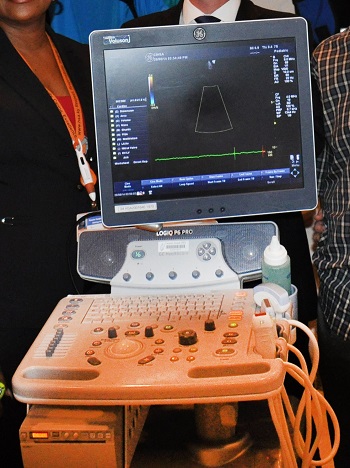
Charity buys neonatal probe for hospital
 (CNS): The Cayman Heart Fund has donated a neonatal cardiac probe to the George Town hospital bought with funds raised from a fun-run earlier this year. The equipment will enable medical staff to diagnose here rather than flying sick children overseas. The probe which is specifically designed for children is one of a number of costly pieces of lifesaving cardiac care equipment that the local charity has been able to give to the health services authority to support improvements to the department, which includes an Electrocardiography Machine (ECG) and four mannequins to the Advanced Cardiac Life Support Training programme.
(CNS): The Cayman Heart Fund has donated a neonatal cardiac probe to the George Town hospital bought with funds raised from a fun-run earlier this year. The equipment will enable medical staff to diagnose here rather than flying sick children overseas. The probe which is specifically designed for children is one of a number of costly pieces of lifesaving cardiac care equipment that the local charity has been able to give to the health services authority to support improvements to the department, which includes an Electrocardiography Machine (ECG) and four mannequins to the Advanced Cardiac Life Support Training programme.
“This great contribution to the neo-natal and children’s ward will give the department the ability to diagnose right here on island, rather than flying the children overseas,” said the HSA Chief Executive Officer Lizzette Yearwood said. “This is not only cost effective, but saves invaluable time in the diagnosis stage, meaning children and their families no longer need to undertake tense journeys for testing. We are very thankful to the Cayman Heart Fund and their donations to help enhance our patient’s experience.”
Dr Marlene Craigie, HSA Radiologist explained that this probe is specifically for children ages 14 and below. “The probes we previously had were mainly for the adult heart but this one is catered to children and the resolution is of a much higher quality,” she added.
David Dinner, Chairman of the fund said Cardiovascular Disease (CVD) is one of the main sources of health problems in the country.
“The Cayman Heart fund is a non-profit and non-government organization striving to bring awareness to heart and circulatory diseases. We realize the struggle that those who have cardiovascular disease go through and are dedicated to making a difference and reducing the likelihood of early death,” he said. “Over 400 participants took part in this year’s Cayman Heart Fund Discovery Day 5k Walk/Run, and the proceeds from which, teamed with a generous donation from Mr. and Mrs. Agar of Agar Corporation Ltd, ensured the equipment was in place as soon as possible,” he added.
For more information about the Cayman Heart Fund, visitwww.caymanheartfund.com or for more info about the Cayman Islands Health Services Authority, please visit www.hsa.ky

Fever to trigger visitor isolation in Ebola plan
 (CNS): Following the cruise ship Ebola scare, last week, local officials have now revealed their plan to deal with the possible entry of the deadly virus into Cayman. Although the public health boss had indicated that it may be November before the hospital would be in a position to deal with any casesof the disease, should it find its way to these shores, following the news that a Texas health care worker who may have been exposed to the virus was on board a cruise ship in the region, government has picked up the pace on its plan and says any visitors from the West African region with a fever will be isolated.
(CNS): Following the cruise ship Ebola scare, last week, local officials have now revealed their plan to deal with the possible entry of the deadly virus into Cayman. Although the public health boss had indicated that it may be November before the hospital would be in a position to deal with any casesof the disease, should it find its way to these shores, following the news that a Texas health care worker who may have been exposed to the virus was on board a cruise ship in the region, government has picked up the pace on its plan and says any visitors from the West African region with a fever will be isolated.
Lizzette Yearwood the Health Services Authority’s chief executive officer said travellers arriving from any destination who have fever will be treated as suspect cases, until confirmed positive for Ebola.
“Plans are also in place for the isolation and management of such cases until a full-fledged field unit can be arranged,” she said in release from the health ministry. “We are procuring adequate protective gear for Cayman Islands Hospital staff, and have organised training in all aspects of the management of the virus with the support of an overseas health facility. We are confident we can manage if the need arises,” she added.
Bruce Smith, the Deputy Chief Immigration Officer said his office is actively taking measures to identify passengers by way of a traveller’s questionnaire which asks specifically about travel to West Africa within the past four weeks of their arrival in the Cayman Islands. The department will notify the Health Services Authority (as per protocol), where any have been to Guinea, Sierra Leone, Liberia or Nigeria.
Although the chances of the disease arriving in Cayman are still narrow the movement of healthcare workers in the United States, that have been exposed to the virus since it arrived in Texas, makes the possibility less remote.
The health minister said he was pleased that the cruise ship on which a lab technician who had handled blood samples with the virus was travelling had headed back to Texas. The Carnival Magic which was refused entry into both Belize and Mexico, had been in Cayman just two weeks ago and was due to arrive here this week.
“I am happy that the Carnival ship that was due here next week has gone back to home port, and so far we have not been exposed at any of our ports of entry,” Osbourne Bodden said. “Stakeholders are working hard to ensure that the Cayman Islands remains free of the virus, or that any outbreak is quickly contained. An emphasis has been placed on ensuring that staff at stakeholder agencies are both trained and informed about the disease.
“Government is also monitoring the situation in Guinea, Sierra Leone, Liberia and Nigeria, although the outbreak in that country appears to be contained,” the Minister added.
Officials from 13 agencies are now said to be “working together robustly, to mitigate against the threat of the Ebola virus,” as it has now reached the United States. Members include Public Health, Health Services Authority, Ministry of Health, Ministry of Home Affairs, Hazard Management Cayman Islands, Environmental Health, the Royal Cayman Islands Police Service, the Cayman Islands Airports Authority, the Port Authority, Immigration, Customs, the Department of Tourism and Government Information Services.
Stakeholders have been refining existing preparedness plans and procedures to satisfy the protocols necessary for successful containment of the virus. Some areas under consideration by the Ebola planning committee have included: entry screening protocols; personal protective equipment (PPE); contact tracing; and contingency plans that cover issues such as transportation, isolation/quarantine, case management and infection control measures.
Medical Officer of Health, Dr Kiran Kumar, who heads the committee said the cooperation was extremely productive. The Health Services Authority team will now check temperatures of travellers and they will be isolated if they have fever or quarantined if there is no fever, whether residents or visitors, for up to 21 days from the date of their departure from the affected countries.
In addition tooverseeing local precautions, the Public Health Department is also communicating with international agencies such the Caribbean Public Health Agency, the Pan American Health Organization, the Centers for Disease Control and Public Health England. Should the Ebola virus reach the Cayman Islands, these organisations have promised technical assistance with regards to the deployment of human resources and supplies, Dr Kumar explained.
The premier, who is also the minister of home affairs said the country had a robust system in place.
“Cabinet will meet Tuesday for a briefing and update on Ebola and our efforts on the ground in the Cayman Islands to keep the public safe,” Alden McLaughlin said. “I can assure all that we have a robust communicable disease surveillance system already in place and the Ministry of Health, as well as the Health Services Authority, have already begun work on identifying protocols to deal with the disease should the need arise.”
Officials said the public will receive periodic updates on the global and regional situations with regards to the spread of Ebola, as well as the Cayman Islands’ readiness to cope with any local outbreak.
Despite on-going concerns about the potential for the virus to spread some 60 Dallas residents and health workers who had contact with the first Ebola patient to be treated in the United States were released from quarantine Monday with none of them infected. A nurse who contracted Ebola while caring for two infected West African patients in a Madrid hospital has now tested negative, Spanish authorities have said. The result suggests Teresa Romero, 44, is no longer infected although a second test is required before she can be declared free of Ebola.
However, there are still concerns and speculation that Nina Pham, the Dallas nurse who contracted Ebola last week, may have spread the virus to her boyfriend, according to US media reports.
Meanwhile, with no new cases for more than six weeks, Nigeria has been declaredofficially free of Ebola the World Health Organization (WHO) said Monday. Nigeria won praise for its swift response after a Liberian diplomat brought the disease there in July.
The Ebola outbreak has killed more than 4,500 people in West Africa, mostly in Liberia, Guinea, and Sierra Leone. An estimated 70% of those infected have died in those countries.
Key facts about Ebola
The virus is transmitted to people from wild animals and spreads in the human population through human-to-human transmission. The first Ebola virus disease (EVD) outbreaks occurred in remote villages in Central Africa in the 1970s, near tropical rainforests, but the most recent outbreak in West Africa has involved major urban as well as rural areas.
The average EVD case fatality rate is around 50%. Case fatality rates have varied from 25% to 90% in past outbreaks.
Early supportive care with rehydration and symptomatic treatment improves survival rates.
There is as yet no licensed treatment proven to neutralise the virus but a range of blood, immunological and drug therapies are under development.
There are currently no licensed Ebola vaccines but two potential candidates are undergoing evaluation.
The incubation period, which is, the time interval from infection with the virus to onset of symptoms is 2 to 21 days.
Humans are not infectious until they develop symptoms.
First symptoms are the sudden onset of fever fatigue, muscle pain, headache and sore throat. This is followed by vomiting, diarrhoea, rash, symptoms of impaired kidney and liver function, and in some cases, both internal and external bleeding (e.g. oozing from the gums, blood in the stools). Laboratory findings include low white blood cell and platelet counts and elevated liver enzymes.
See related story on CNS

Ebola scare on Carnival ship
 (CNS): A Dallas health worker who could have been exposed to the deadly Ebola virus is currently in voluntary quarantine aboard the Carnival Magic cruise ship, a vessel that docked in Cayman only two weeks ago, and due to dock this week. Although the woman appears to be low risk for contracting the virus and has not shown any symptoms, the revelation has demonstrated how easily Ebola can spread to anywhere in the world. The Tourism Ministry has said that when the Carnival Magic was last in Cayman there were no indications that the ship or its passengers would have presented any risk at that time. Officials have also contacted the cruise line about action that will be taken to mitigate any potential risk on the ship going forward.
(CNS): A Dallas health worker who could have been exposed to the deadly Ebola virus is currently in voluntary quarantine aboard the Carnival Magic cruise ship, a vessel that docked in Cayman only two weeks ago, and due to dock this week. Although the woman appears to be low risk for contracting the virus and has not shown any symptoms, the revelation has demonstrated how easily Ebola can spread to anywhere in the world. The Tourism Ministry has said that when the Carnival Magic was last in Cayman there were no indications that the ship or its passengers would have presented any risk at that time. Officials have also contacted the cruise line about action that will be taken to mitigate any potential risk on the ship going forward.
When it was realized that the women who had handled clinical samples from an Ebola patient was on board the cruise ship, it was turned away from both Belize and Mexico and was reportedly heading back to Texas on Friday afternoon.
The Centres for Disease Control and Prevention had alerted the cruise operator on Wednesday that a guest on the ship was a lab supervisor at the hospital where Ebola patient Thomas Eric Duncan was treated.
"At no point in time has the individual exhibited any symptoms or signs of infection, and it has been 19 days since she was in the lab with the testing samples," Carnival said in a statement.
During a public meeting on Monday evening, Dr Kiran Kumar had dismissed public fears about cruise ships being a potential danger for bringing the virus to Cayman, saying that situation as unlikely. However, news that a lab technician was vacationing on the ship so soon after handing samples demonstrates how easily the deadly and contagious virus could spread.
“The health and safety of the Caymanian people remains the government's foremost priority and the ministry has contacted the Carnival cruise line to understand what actions will be taken to mitigate any potential risk. We are also liaising with the Public Health Department to ensure their guidelines and directives for managing such instances are followed,” the ministry said in an official statement Friday afternoon. “The ministry wishes to reassure the public that we will continue to monitor developments closely and further advisories will be issued when new information becomes available.”
The cruise ship carrying the technician had left from Galveston, Texas, on 12 October before the woman had been notified of active monitoring by the Centers for Disease Control and Prevention, according to US authorities. The monitoring was established as two nurses at Texas Health Presbyterian Hospital, Nina Pham and Amber Vinson, tested positive for Ebola.
Since the news of the cruise ship scare CIG has stepped up preparations to deal with the possibility of Ebola arriving inCayman.
For full details see the story below
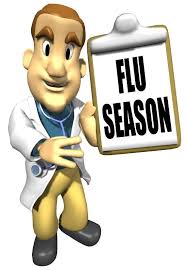
Hospitals begin roll out of free flu shots
 (CNS): The Cayman Islands Hospital on Grand Cayman, the Faith hospital on Cayman Brac and the district health centres will be offering seasonal flu vaccines from Monday, 20 October. Director of Primary Health Care, Dr Kiran Kumar said the shots will protect against the 2009 H1N1 pandemic flu as well. The flu vaccine is free to all residents and no appointments are needed but the public should indicate to the registration officer at the clinic that they need to have the flu shot. “We recommend that people get vaccinated as soon as possible and definitely before the peak of the flu season which ranges between December and January,” Dr Kumar said.
(CNS): The Cayman Islands Hospital on Grand Cayman, the Faith hospital on Cayman Brac and the district health centres will be offering seasonal flu vaccines from Monday, 20 October. Director of Primary Health Care, Dr Kiran Kumar said the shots will protect against the 2009 H1N1 pandemic flu as well. The flu vaccine is free to all residents and no appointments are needed but the public should indicate to the registration officer at the clinic that they need to have the flu shot. “We recommend that people get vaccinated as soon as possible and definitely before the peak of the flu season which ranges between December and January,” Dr Kumar said.
The vaccine is only effective for one season and babies 6 months and older should get the flu vaccine and it is especially important for people at high risk for complications frominfluenza and those who live with or care for them, are vaccinated early each year. High-risk persons include young children 6 months to four years of age, but especially those under two years, pregnant women, people 50 years of age and older. Anyone with a weakened immune systems and those with chronic medical conditions such as heart, kidney and lung diseases, diabetes and the obese should all be vaccinated as well as those living in nursing homes or long term care facilities.
To minimize workplace disruption and ensure that as many persons as possible get vaccinated, Dr Kumar said the Public Health Department will continue the onsite workplace vaccination initiative for companies with twenty or more employees wishing to have the vaccine,
“As we have to schedule the visits to worksites with current staff that have regular duties, the visits cannot be done immediately,” said Dr Kumar as he asked employers to schedule the visits. “While we offer the vaccine at no cost, we are proposing to utilize off duty staff or retired nurses to participate in the flu vaccine programme at workplaces to administer the vaccine as soon as possible for companies willing to contribute $200 per session.
“Companies that do not wish to make arrangements for immediate flu vaccine coverage for their employees may get it in late November or December as the visits will be scheduled when employed staff time is available” he added.
Companies interested in the program should contact the Public Health Department at 244-2648 to register.
The flu vaccine will be available at: The General Practice Clinic at the Cayman Islands Hospital, Faith Hospital in Cayman Brac and all District Health Centres, from 2:00 p.m. to 4 p.m. Monday through Friday. The Little Cayman Clinic: Residents of Little Cayman should contact the clinic to make arrangements. To meet the demand in the initial period, the flu shot will also be available at the Cayman Islands Hospital Atrium (next to the Pharmacy) from October 20th to October -31st 2014 from 10am – noon on weekdays. Flu Shots will also be available at CayShop 2014, October 30 to November 1 at the Arc Cayman Bay.
See more information about the flu vaccine below

More Chikungunya Cases Picked Up From Jamaica
(CNS): Another five people have tested positive for the chikungunya virus, public health officials said Wednesday all of which had a travel history to Jamaica. With Cayman’s close neighbour now experienced a major outbreak, Dr Kiran Kumar, the medical officer of health warned locals to ensure they protect themselves from mosquitoes given the frequent travel between the two countries to help Cayman continue to contain the spread locally. The public health doctor said that Cayman has done a good job controlling the disease because of the work of the MRCU and because the wider public were protecting themselves.
Following the receipt of the most recent blood sample results Cayman has now recorded 25 cases of the mosquito transmitted disease which causes fever, severe joint pain, muscle pain, headache, nausea, fatigue and rash. However, only four of those that contracted the virus do so locally the rest all had a travel history to countries where the disease has become endemic.
Fifteen of the 21 people who picked up chikungunya did so in Jamaica, three were infected in Guyana, two in the Dominican Republic and one in St Lucia.
Officials said none of the patients who have been confirmed as having chikungunya remain contagious but those who have had the illness are residents of both Cayman Brac and Little Cayman, George Town, West Bay and Bodden Town. The chikungunya virus is transmitted by Aedes aegypti mosquitoes biting infected persons during the first week of illness.
Although Kumar is confident that Cayman can continue to control the spread of the virus with many people travelling to countries where the virus is still endemic he is urging people to keep using mosquito repellent and covering up when outdoors during the times when the Aedes aegypti are biting. The HSA is also still waiting on the results of more than 20 other potential cases.
As at 13 October 2014, there were ofer 14,000 cases of the virus in the region.
More information is available at www.hsa.ky and regional updates can be accessed by visiting the CARPHA website onhttp://carpha.org/What-We-Do/Public-Health-Activities/Chikungunya. In addition United States updates are available from the Centers for Disease Control and Prevention on http://www.cdc.gov/chikungunya/geo/united-states.html.
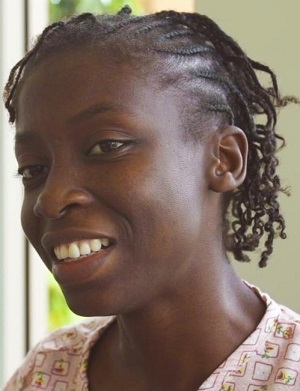
Free Heart Surgery for Jamaican Mom
 (CNS): The Shetty hospital in East End has repaired a heart valve in a Jamaican woman during a complex surgery which was offered free of charge. Officials said that Lesha Matthews (25) was diagnosed with a heart condition as a child. For the last six years her condition has worsened, doctors from the hospital said, as a result of a leaking heart valve and she was finding day to day tasks increasingly difficult. Financial constraints had prevented the young mother, who has a two year old child, from getting the treatment she urgently needed. Her cardiologist in Kingston, Dr William Foster had reached out to doctors and clinics in the United States but to no avail.
(CNS): The Shetty hospital in East End has repaired a heart valve in a Jamaican woman during a complex surgery which was offered free of charge. Officials said that Lesha Matthews (25) was diagnosed with a heart condition as a child. For the last six years her condition has worsened, doctors from the hospital said, as a result of a leaking heart valve and she was finding day to day tasks increasingly difficult. Financial constraints had prevented the young mother, who has a two year old child, from getting the treatment she urgently needed. Her cardiologist in Kingston, Dr William Foster had reached out to doctors and clinics in the United States but to no avail.
"The young woman was suffering, and none of the clinics on the US mainland contacted by her doctor was able to perform the procedure at no cost to the patient. Something needed to be done, so we stepped in," reported Shomari Scott, marketing director at Health City Cayman Islands, the new state of the art facility established by Indian heart surgeon Dr Devi Shetty.
When Dr Binoy Chattuparambil, Senior Consultant, Cardiovascular and Thoracic Surgery, at the East End hospital got to hear about Matthews he examined her health records and invited her to Health City for the surgery.
Dr Foster arranged transportation and Cayman Airways donated the airline ticket. When she arrived in Cayman Dr. Binoy said the patient was undernourished and frail because of her longstanding heart disease.
"One of the main valvesin her heart was leaking severely and the pumping ability of the heart was compromised…. it was decided to take her up for surgery at the earliest."
The heart expert said his team decided on a more complicated operation to avoid the problem of the young woman being dependent on medication for the rest of her life.
"The planwas to repair the valve and not to replace it – even though repair is more technically challenging than replacing the valve – as replacing the valve with an artificial valve will make her dependent on blood-thinning medications for the rest of her life, with its associated complications."
The procedure took three and half hours, the hospital said in a release about the free surgery.
"She was sitting on a chair the same evening sipping juice," Dr Binoy said. "She will be on a few medications for three months and after that she will be free from all medications. The prognosis for a healthy, normal life is a very good one," the surgeon said adding that Matthews has now returned to Jamaica.
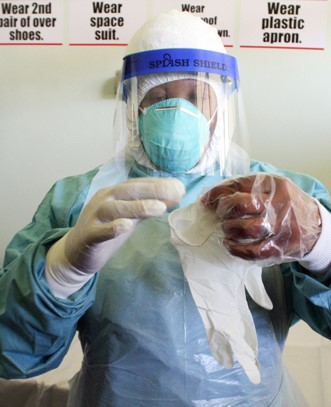
Cayman not fully prepared for Ebola
 (CNS): Around 80 people showed up at a public awareness meeting at the hospital on Monday night to hear what plans the local health and other government authorities have in place to deal with a case of the deadly Ebola virus, should it reach these shores. Dr Kiran Kumar the medical officer of health said that people shouldn’t panic as he believed the possibility of the virus coming here was still very remote as he admitted that plans to deal with a possible case were not yet finalised. He said discussions were still underway about where any infected person could be held and assessments had yetto be completed regarding the protective equipment and resources that would be needed.
(CNS): Around 80 people showed up at a public awareness meeting at the hospital on Monday night to hear what plans the local health and other government authorities have in place to deal with a case of the deadly Ebola virus, should it reach these shores. Dr Kiran Kumar the medical officer of health said that people shouldn’t panic as he believed the possibility of the virus coming here was still very remote as he admitted that plans to deal with a possible case were not yet finalised. He said discussions were still underway about where any infected person could be held and assessments had yetto be completed regarding the protective equipment and resources that would be needed.
Although government hasn’t issued any travel bans and there are no plans to do so yet, Kumar urged people not to go to the West African countries where the virus has taken a hold be it for humanitarian or any other reason. He said there was just one resident in Cayman from Liberia which has seen around 2500 people die from the disease and 14 from Nigeria where eight people died and where the virus appears to have been contained.
Kumar noted that only three people have passed through Cayman’s airports since the beginning of the year that had come from West Africa so the country does not have any real cause for concern regarding travel from the impacted countries. However, he said that public officials will monitor closely the situation in Texas to see how many people who have been quarantined will test positive for the virus. Several dozen people in the Dallas areas were isolated as a result of coming into contact with either the nurse Nina Pham who is now infected or the patient she cared for, Thomas Eric Duncan, the Liberian man who was the first person diagnosed with Ebola in the United States.
Kumar confirmed that if anyone is diagnosed in Cayman they will be treated here and the hospital is seeking to identify an entirely separate unit somewhere on the hospital grounds or nearby where a treatment centre come be isolated. He said that by the middle of next week the public health department will know exactly what equipment it needs from the WHO recommended list to enable the local hospital to cope in the first few days before it would expect to receive support from international health agencies.
“According to WHO we need to have personal protective equipment etc. and a facility. We are working on all those things and taking stock of items on the list and we will order what we haven’t got.”
The doctor said that all government agencies from those involved in border control to hazard management have been meeting and brainstorming about the best way to keep the virus out of Cayman but also how to tackle a case if a person infected arrives here and he said there is a skeleton plan although it is not yet fully formed.
“We have contingency plans and have identified how we could deal with a case but we have not come to any final conclusions,” Kumar said.
Outlining the details of the disease its spread and its mortality rate which was confirmed Tuesday as 70% by WHO Dr Kumar pointed out that those caring for patients in the last stages of the sickness are the most vulnerable.
So far experts on the disease have indicated that those with casual contact during the early part of the contagious period with someone who has Ebola do not appear to be contracting the virus. Dr. Julie Fischer, an associate research professor of health policy at George Washington University has told the US media that the “casually exposed arenot getting sick,” which is reassuring for successful containment in the US.
Health experts claim the disease is hard to catch, that an infected person is not contagious until symptoms appear and that Ebola is spread by close contact with bodily fluids such as blood, sweat and saliva. No evidence points to anything else.
Nevertheless, health care workers are at high risk and have been hard-hit during this outbreak. They are the ones dealing with patients at their most contagious and even following strict protocols two nurses in western countries have caught the disease from patients.
If an infected person arrives in Cayman, while those who come casually into contact with the patient may not be at risk, the health care workers at the hospital who are assigned to that patient are at themselves at increasing risk as the patient gets sicker. Dr Kumar confirmed there would need to be training to ensure staff can protect themselves, and how to wear the protective bio suits. He said it was important to know not just how to put on and wear the protective suits but how to remove them and dispose of the suits after treating Ebola patients, safely. It is understood that the Dallas nurse was exposed to Ebola during the removal process.
Cayman is not yet screening patients but the West African nations impacted are exit screening and the US and European airports are also beginning to screen. This means that anyone carrying Ebola would have gone through at least two screenings before they arrived in Cayman.
Kumar admitted that it would not be possible to say Cayman will not get a case but the chances he said were remote. He said if there was a case Cayman would cope but admitted that no one could know what would happen if there was a worldwide epidemic of the virus.
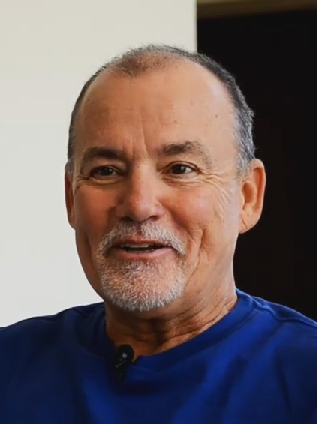
Medical tourism emerging at Shetty hospital
 (CNS): While the Shetty hospital has treated several hundred local and regional patients, saved the life of a number of visitors the much anticipated medical tourism is also appearing to take shape after the hospital announced a successful hip replacement for a visiting American patient. Officials from Health City, Cayman said Michael Lepley undertook his own research and decided on the new hospital in East End for the surgery. Desperately in need of the procedure he set out to learn all he could about the availability of options in Asia, Latin America and elsewhere in the Caribbean before he "stumbled upon" Health City Cayman Islands on the Internet.
(CNS): While the Shetty hospital has treated several hundred local and regional patients, saved the life of a number of visitors the much anticipated medical tourism is also appearing to take shape after the hospital announced a successful hip replacement for a visiting American patient. Officials from Health City, Cayman said Michael Lepley undertook his own research and decided on the new hospital in East End for the surgery. Desperately in need of the procedure he set out to learn all he could about the availability of options in Asia, Latin America and elsewhere in the Caribbean before he "stumbled upon" Health City Cayman Islands on the Internet.
Lepley explained how he chose the hospital.
"First thing was how quickly I was contacted when I made an enquiry,” he said, adding that Joan Freedman the Patient Care Relations Manager responded almost immediately. This was followed by an hour-long conversation with Dr Alwin Santiago Almeida, the orthopedics and joint replacement surgeon who eventually performed the operation. "I have not had a five minute conversation with a doctor in the United States in five years, so I thought: 'This is a good start.'"
The fact that Health City provides a single quote in terms of cost so that patients do not have the additional stress of coping with post-operative medical bills was an added attraction for Lepley who said that meant he knew what the surgery and care were all going to cost up front. Having been a cruise ship visitor Lepley said, “I knew where it was – and where could you go to beat the Cayman Islands to recover for a couple of weeks?"
Lepley had his first hip replacement in the US while he was covered by company insurance, but as a retiree, he did not have medical coverage for his second replacement at Health City Cayman Islands. "It still cost me more five years ago in the United States to have this done – with insurance – than this whole trip is going to cost me. And that was out of my pocket, deductibles and everything else."
The financial savings made possible by Health City were significant for Lepley but he saw beyond the cost benefits. "I don't think that's the most important thing. This place is just unbelievable (and) the quality of care, the quality of facilities, equipment, the nurses, the technicians, the food, everything's just been top notch."
Unable to dive while he was here for his operation the American patient said he was however, looking forward to a return trip to the Cayman Islands for follow-up tests at Health City, when he will be able to swim. "It's been a tremendous experience for me," he added.
Lepley is exactly the type of patient that Dr Devi Shetty had spoken about attracting when he first presented the idea of his hospital to the government and the people of the Cayman Islands triggering the idea of medical tourism as a third leg of the economy.
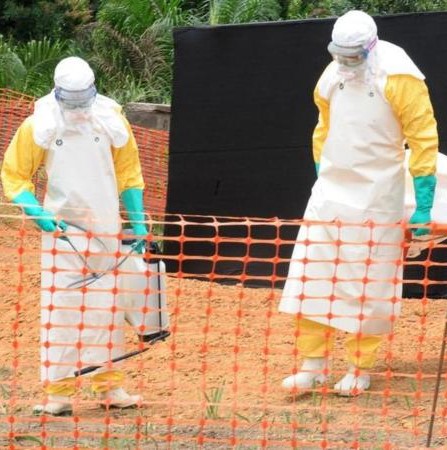
Officials to hold public meeting on Ebola
 (CNS): As concerns mount around the world over the growing threat that Ebola could now spread in Europe and the United States, Medical Officer of Health Dr Kiran Kumar will be hosting a general awareness and travel advisory public meeting Monday evening at the George Town Hospital. All are invited but residents from Guinea, Sierra Leone, Liberia and Nigeria, the countries directly impacted by the potent virus, are asked to attend along with other interested members of the public. The health minister told CNS this week that the stakeholder committee continues to meet and action plans have been developed to deal with anyone who arrives in Cayman who could be infected.
(CNS): As concerns mount around the world over the growing threat that Ebola could now spread in Europe and the United States, Medical Officer of Health Dr Kiran Kumar will be hosting a general awareness and travel advisory public meeting Monday evening at the George Town Hospital. All are invited but residents from Guinea, Sierra Leone, Liberia and Nigeria, the countries directly impacted by the potent virus, are asked to attend along with other interested members of the public. The health minister told CNS this week that the stakeholder committee continues to meet and action plans have been developed to deal with anyone who arrives in Cayman who could be infected.
The meeting will be held at the Hibiscus Conference room (next to the Pink Ladies Cafeteria) on Monday, 13 October at 5:30 pm at the Cayman Islands Hospital in George Town. For further information call the Public Health Department on 244-2621.